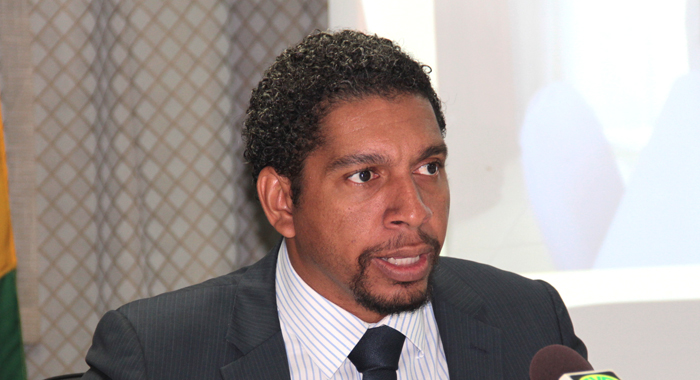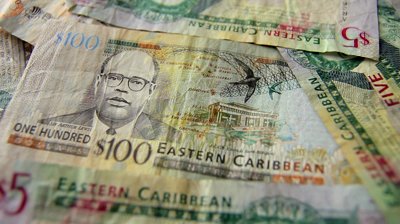The government on Thursday launched the National Wages Council, which will review minimum wages in St. Vincent and the Grenadines (SVG), with a view to increasing them.
The council is set up to examine and make recommendations to the Governor General on matters related to minimum wage, hours of work, conditions of employment, etc.
Speaking at the launch in Kingstown, minister with responsibility for labour matters, Camillo Gonsalves, cited Goal 8 of the United Nations Sustainable Development Goals.
Goal 8 calls on nations to “Promote inclusive and sustainable economic growth, employment and decent work for all”.
Gonsalves said the wages council will perform some of the structural work necessary to achieve this goal in SVG.
He said poverty reduction is a central policy objective of the government, adding that central to continued poverty reduction is the creation of more quality jobs and a decent living wage.
Since 2001, about 8,000 jobs have been created in the Vincentian economy, Gonsalves said.
The target between now and 2020 is to create and additional 9,000 job, which he said is achievable given infrastructural and investment projects that are on stream or soon to be implemented, including the operationalization of the Argyle International Airport.
“But a necessary precursor to this redoubled focus on job creation and anticipated growth in employment is the completion of another wages council’s exercise,” Gonsalves said.
He said many productive sectors have already raised the minimum wage and many individuals have unilaterally set a minimum reserve price for their labour that exceeds the current minimum wage.
“Many employers in the agricultural sector, to take one example, already find that they have to pay rates above the statutory minimums if they want to attract and retain a quality workforce.”

He pointed out that the 2008 wages council regulations set wages for agricultural work somewhere between EC$30 and EC$36 per day depending on whether the person is working under a shelter or in the open field.
“But, very often, you hear people say they won’t work for less than 40 and 45 dollars,” Gonsalves, said, adding that many persons outside of the formal economy have also said they would not accept certain jobs
“Whether this wages council will fix the minimum wages more reflective of the going market rate, or whether they would establish a new floor that employers would have to go beyond, is a matter that I am sure you would discuss robustly,” Gonsalves said.
He said an increase in the minimum wage, as advocated by Prime Minister Ralph Gonsalves, and as a likely outcome of the Wages Council exercise, is a complex exercise with implications on poverty reduction, fiscal policy and the investment decisions of the private sector.
“The size of any minimum wage hike and the timing of any such exercise are also important and very sensitive matters.
“There is one school of thought that suggests caution when considering an increase in the minimum wage during a period of global economic volatility and amid local economic conditions that are still typified by vulnerability and low growth.”
Gonsalves said that given the low to negative inflation in recent years, many argue, with some justification, that the cost of living has not increased sufficiently to merit an upward revision of minimum wages.
He said that the inflation rate in 2015 was minus 2.1 per cent, and it was “flat” in the previous two years.
“However, we believe that an increase in the minimum wage, soberly considered and properly implemented, can have a positive impact on the condition of workers and our overall poverty reduction thrust.
“At the most basic level, minimum wage increase have the potential to stimulate the economy and increase demand by putting money into the pockets of low-income consumers who immediately spend it at local businesses.”
Gonsalves said that strengthening the minimum wage could conceivably help build a sustainable economic recovery without increasing cost for taxpayers beyond the taxes they would pay on their increased salary.
He, however, said that in small vulnerable developing economies, like SVG, that have a host of structural limitations, there are limits to how much and how fast the minimum wage can or should be raised to optimise the goals of greater employment and reduced poverty.
He said that evidence from a number of developing economies suggests that higher minimum wages can increase unemployment if employers decide to lay off workers to keep their wage bill constant.
“Those laid off workers, in small developing economies, often resort of the informal sector, the informal economy to find work, which is largely unregulated from a minimum wages standpoint, and which often forces workers to accept below minimum wages for their labour.
“In other words, the minimum wages cannot be set so high as to markedly increase unemployment, drive workers into the informal sector or encourage non-compliance by employers. In those circumstances, you find yourself with a high minimum wage on the books but very few persons actually earning the prescribed minimum wage.”
Gonsalves said that similarly, if retailers raise the price of basic consumer goods under the guise of passing on wage increases to the consumer, then the poverty reduction potential of minimum wage hike is negated.
“And we have to guard against that, most robustly,” Gonsalves said.
He noted that the wages council is the fourth set up since the Unity Labour Party came to office in 2001.







What we don’t need is an Economics 101 lecture from the boy wonder. What we need are policies to reduce the sky high levels of unemployment and underemployment, both of which are unchanged at around 25 percent each, under this regime.
Nice to sit in the dark and shout . You are now in the light, so what your discourse ?
The 8,000 jobs said to have been created since 2001 have to be put in the following context:
1. The thousands created in the public sector are mainly patronage appointments that are an economic drag on the economy.
2. Those created in the private sector came into being not because of good public policies but rather despite bad public policies.
3. Much or most of the growth in employment was due to the migration of Vincentians of working and middle class backgrounds to countries that promised to give them a better way of life.
One of the problems is that it takes three or more Vincentians to do one mans job.
Even shop staff have one serving to one to watch them and another to take and account for the money.
Vincentian workers love to talk crap, either on the phone or to each others instead of working, Vincentians still haven’t learnt to talk and work at the same time.
If this system was not firmly in place in SVG at least 50% of those employed would no longer be needed.
Increase the wages without curing the ailments and many of the workforce will be sent home.
Peter, this is the only thing you, me, and the Comrade agree with: SVG had a huge worker productivity problem.
It is rooted in our slave society past but this doesn’t mean it can’t be eradicated.
silly boy is a newcomer and doesn’t have any idea
Obviously the government is missing the point and very few in SVG understand the problem. We do not need higher wages, nor do we need higher taxes. We need to bring prices down. However, the government is doing everything possible to do the opposite. As the government is doing everything to make life more expensive in SVG, that increases the cost of any products we may produce, including tourism. Thus no one in the world wants to pay more (for Vincentian products) when they do not have to. Tourists will be going to Cuba because the cost of a vacation will be far less than coming to SVG. The world will buy farm products from Africa and South America because they are cheaper, and SVG will continue to grow poorer and poorer. The boy wonder needs to visit Economics 101.
Why is Camillo only focused on “agriculture workers”…what about the other categories who are grossly underpaid??? According to SRO_Revised 2008, Shop Assistants, particularly Check Out and Office Attendants and Cashiers, are paid 2.84 PER HOUR…think about that. After N.I.S is it 2.71….Working an 8 hour shift is $21.68…Working for $21.68 PD/130.08 PW is SLAVERY! Few pounds of rice, peas, a bag of bread and few pounds of chicken back etc etc and the money is finished! Yes we have people living like this weekly and still have bills and transportation to pay; I will be conservative and exclude any child.